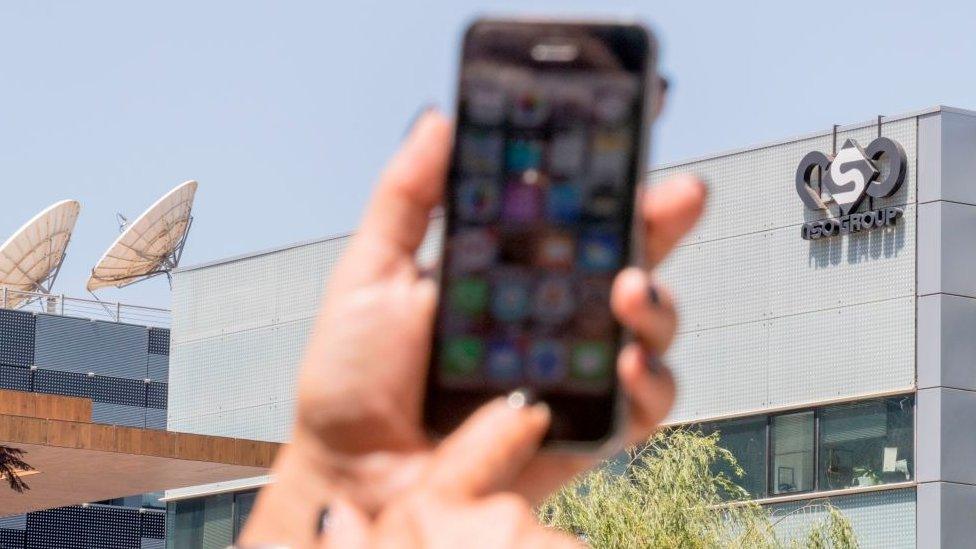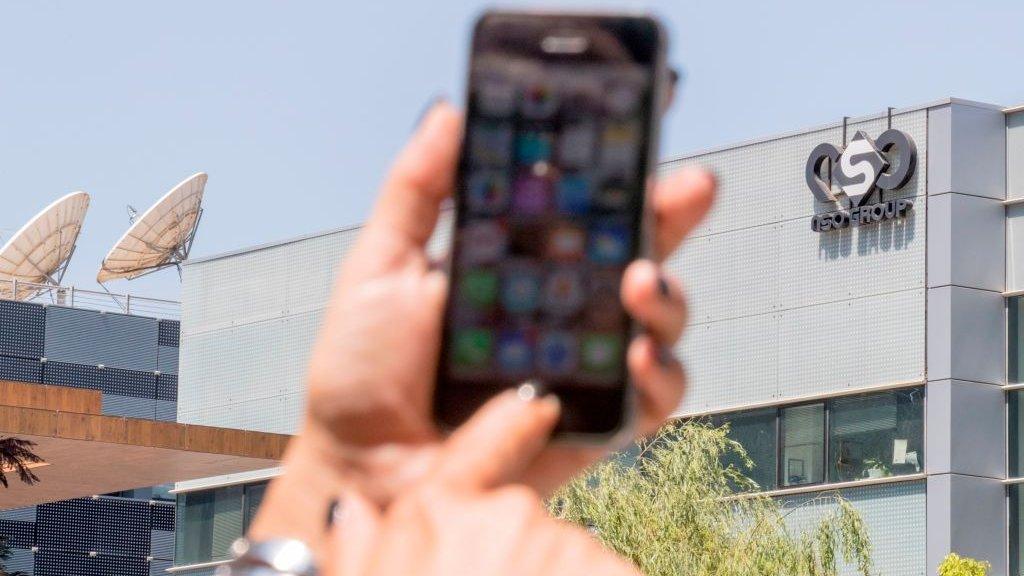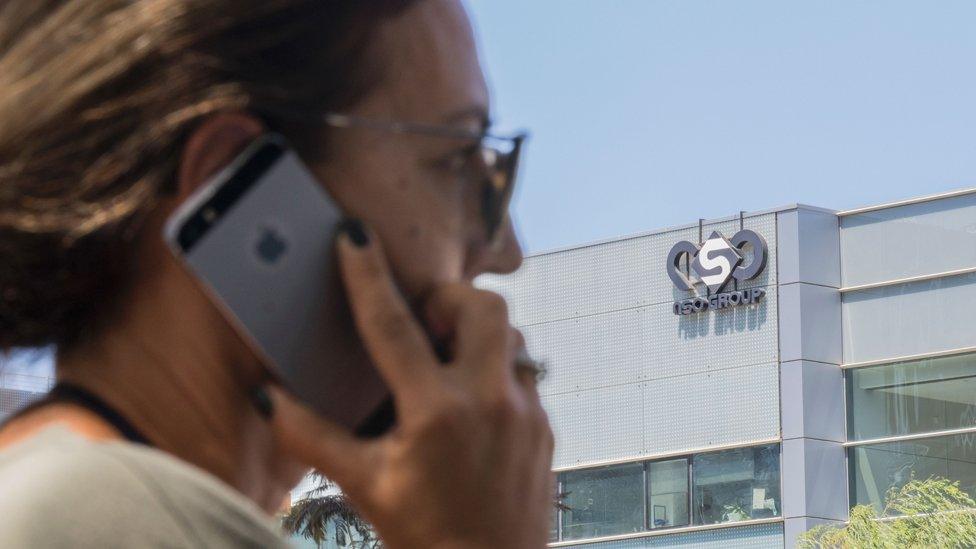Israeli inquiry finds no indication police used spyware unlawfully
- Published

NSO has previously said its software could not be used to track Israeli citizens
An inquiry has found "no indications" that Israeli police used NSO Group's Pegasus spyware to hack the phones of public figures without authorisation.
The newspaper Calcalist reported that officials, protesters, journalists and a son of former Prime Minister Benjamin Netanyahu were among those targeted.
But the deputy attorney general found no evidence to support the claims.
Internal Security Minister Omer Barlev welcomed what he called "a resounding acquittal" for the police force.
NSO Group, an Israeli surveillance firm that developed the Pegasus software, said it hoped the inquiry's conclusions would "result in reporting that no longer relies upon misinformation and political organisations issuing biased and prejudiced reports", according to the Associated Press, external.
The company has faced widespread allegations that Pegasus has been sold to and misused by authoritarian governments across the world.
Pegasus infects phones, allowing operators to extract messages, photos and emails, record calls and secretly activate microphones and cameras.
The report published earlier this month by Calcalist, external, an Israeli business daily, identified 26 people whose phones it said the Israel police hacked between 2015 and 2018 to "phish for intelligence even before any investigation had been opened against the targets, and without judicial warrants".
Prime Minister Naftali Bennett said the allegations, if true, were "very serious" and asked Deputy Attorney General Amit Merri to investigate them.
On Monday afternoon, the justice ministry issued a statement saying there were "no indications" that Israeli police infected the phones of those named in the newspaper report without a court order.
The inquiry found that officers did receive authorisation to hack the phones of three people named by Calcalist, but that only one was successfully infiltrated, the statement added.
Mr Netanyahu's opposition Likud party said after the findings were published that the inquiry was insufficient and called for a more thorough investigation.

You may also be interested in:
What’s it like to have spyware on your phone?
- Published7 February 2022

- Published22 July 2021

- Published19 July 2021
